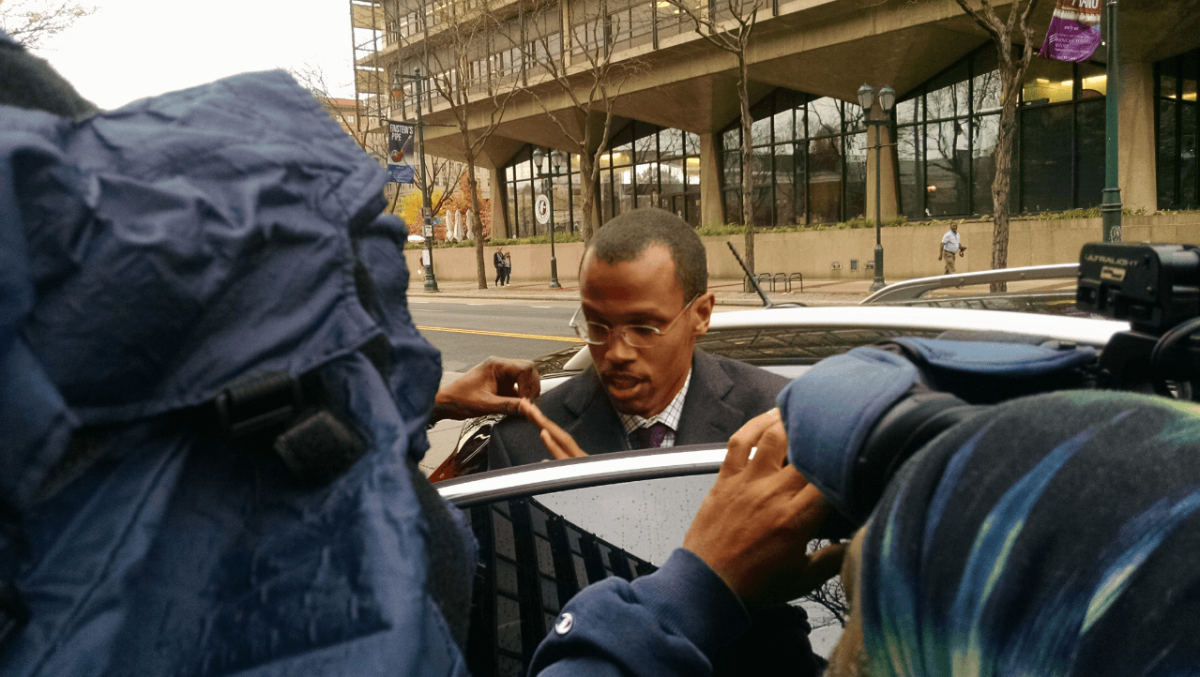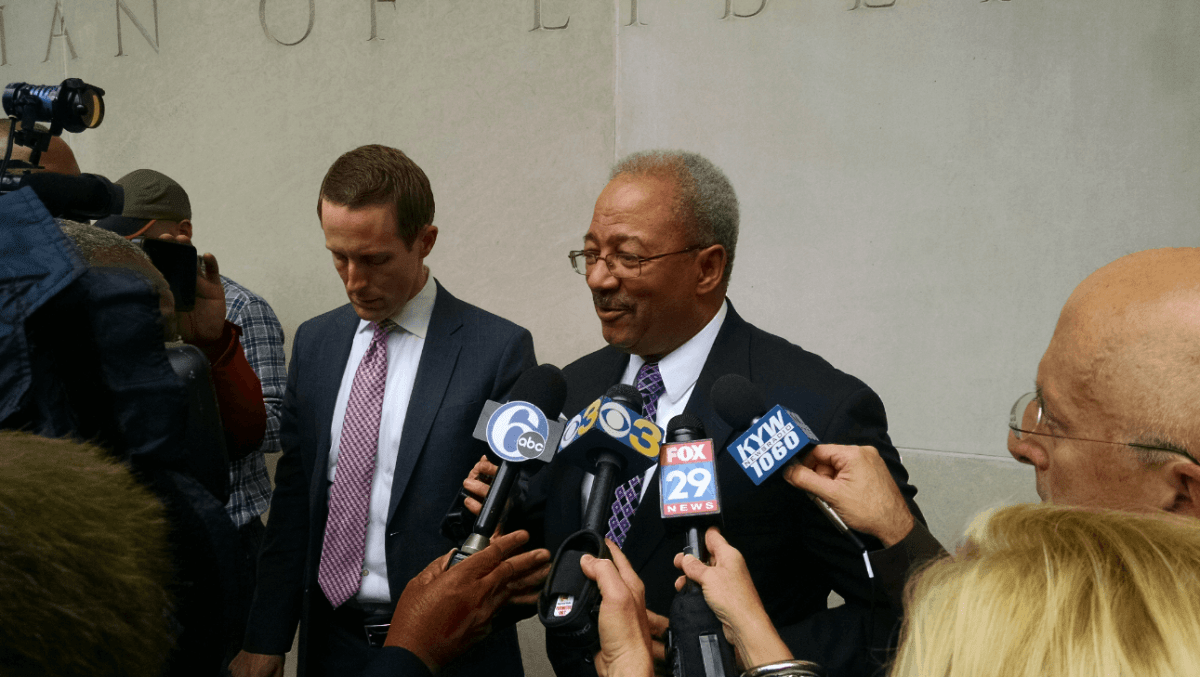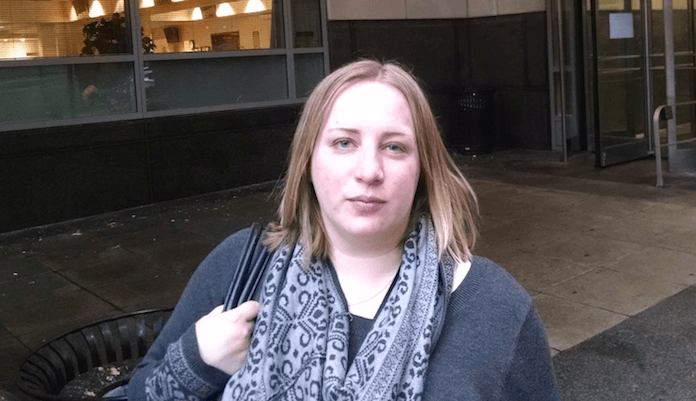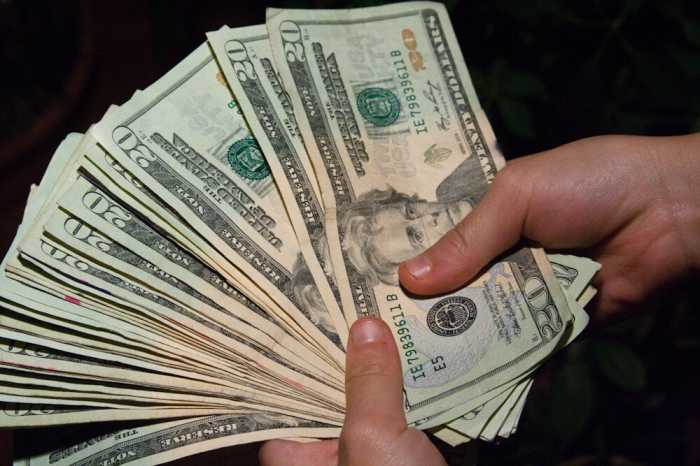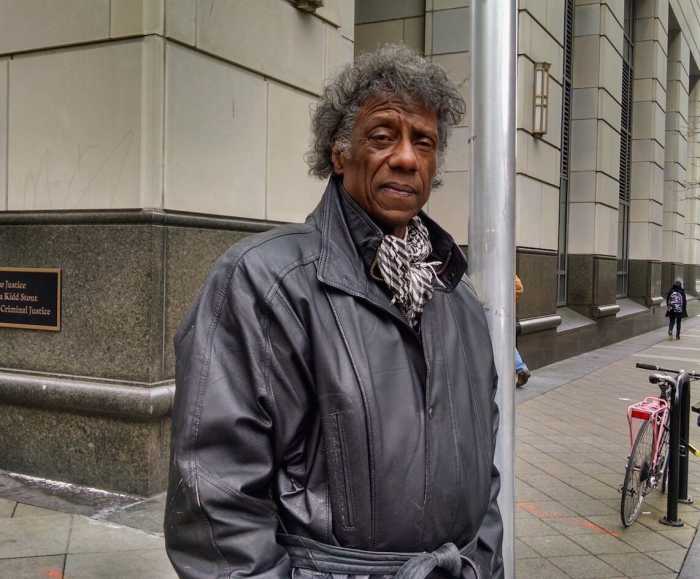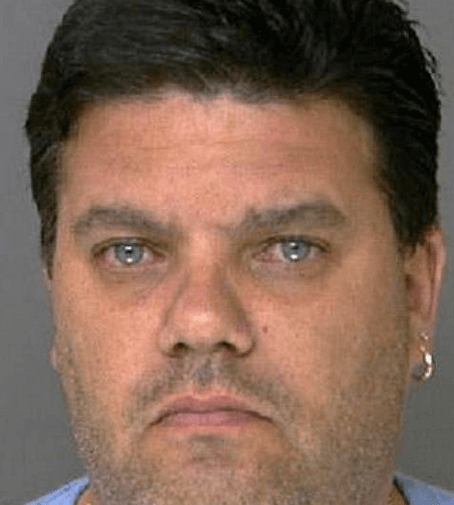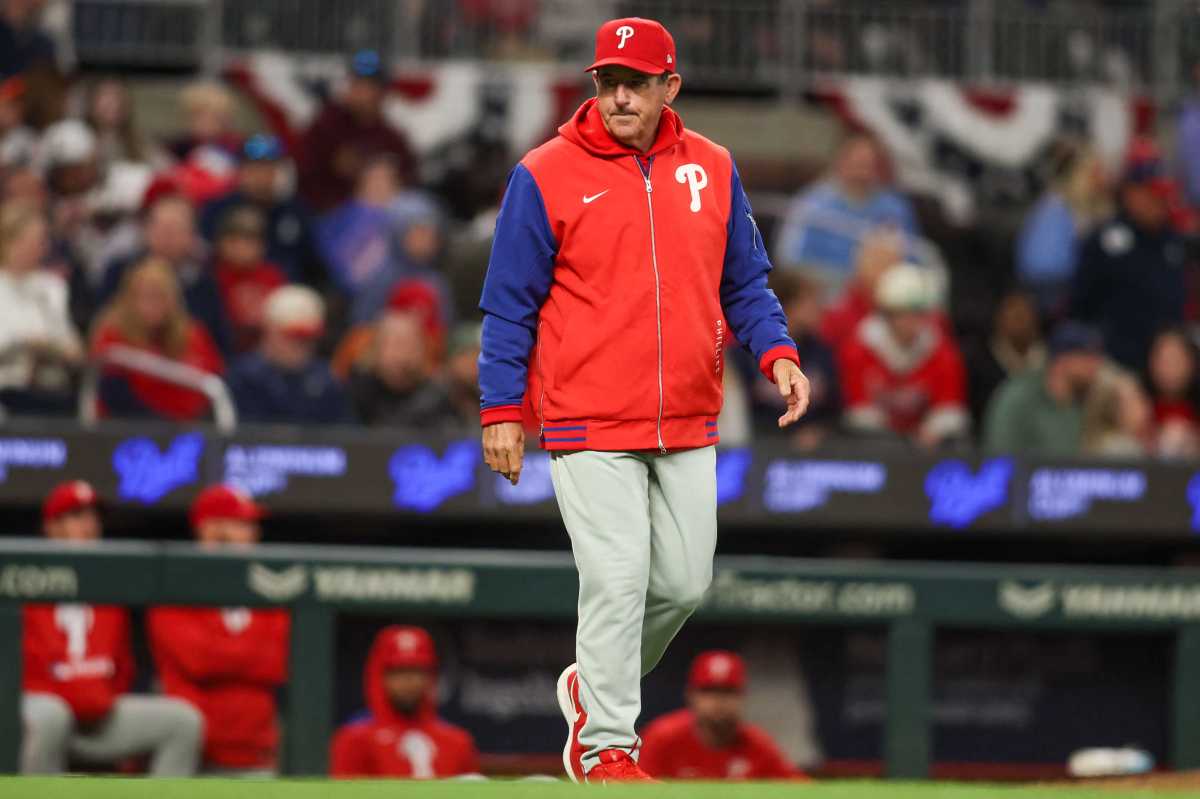He claims the publicity made him unemployable and ended his contract with Delaware Valley High Schools — which he said led to his decision to represent himself pro se. “The situation I was faced with — It was hard to talk through other people, he said. “Do you think that if Skadden Arps came down here from New York with their team a phalanx of lawyers and charts, presentation skills, that I would be worried about speaking through them?” But he expressed confidence about his future.
“I’m going to be good on appeal,” he said.
“These same individuals had been involved in a multi-year investigation into me,” he said. “Could that have perhaps provided some light on this subject?” His father also said the trial was not fair, saying that his son was forbidden from discussing the investigation into Chaka Fattah Sr.
Federal prosecutors made Fattah Jr.’s work as a consultant running 259 Consulting, which was hired by David Shulick, CEO of Delaware Valley Charter Schools, a program serving at-risk urban youth, the centerpiece of their case. Prosecutors contend that Fattah Jr. illegally obtained a $450,000 fee by aiding Shulick inflating budgets at the school, which had a $4.5 million contract and was paid by the School District of Philadelphia. The contract required that Shulick spend 10 percent on a certified minority contractor.
Fattah Jr. said in tapes of conversations secretly recorded by his college roommate, Matthew Amato, that his father, U.S. Rep Chaka Fattah, who is also indicted on federal fraud charges, was the one who referred Shulick to Fattah Jr. Federal prosecutors also claimed that Shulick and Fattah Jr. inflated the budget further — by an additional $450,000, $50,000 of which was budgeted for “interns,” so that Fattah Jr.’s cut of the contract would not affect Shulick’s bottom line.
Chakah Fattah Jr. guilty on 22 of 23 counts in fraud case
Chaka Fattah Jr. was convicted by a jury on Thursday on 22 of 23 counts of fraud.
Fattah Jr., the son of a veteran Philadelphia congressman, vowed to appeal.
Charges were related to Fattah Jr.’s personal tax returns, his use of funds acquired through business loans from various banks that the government said were obtained fraudulently, and his work as a consultant to a charter school.
Fattah Jr. told reporters after the verdict was announced that the admitted leak by an FBI agent of a federal raid on his apartment in February 2012 to local media led to his inability to afford counsel.
“Because of the media leak, I lost my income,” Fattah said.
His father, U.S. Rep. Chaka Fattah, questioned the trial’s fairness — noting that his son was forbidden from discussing the federal investigation into Fattah Sr.



